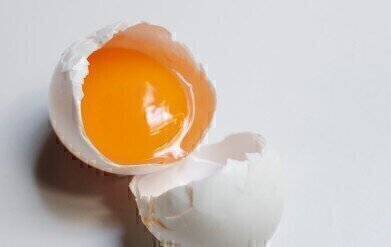News & views
How to Boil an Egg ... Backwards!
Feb 02 2015
There are some things in life that once done you simply cannot undo. This was one true of a boiled egg, but not anymore. Chemists have discovered how to unboil an egg, at least the white bit of it anyway.
UC Irvine and Australian chemists have worked out how egg whites can be unboiled and returned back to their natural state.
Egg whites are made up of around 12% protein. Proteins contain amino acids which are folded in a very particular way. For example, some of the proteins are hydrophilic, which means they are attracted to water, and other parts are hydrophobic, meaning they will always avoid water. This impacts how the proteins are folded.
Add heat to the eggs and denaturation occurs, which is when the folded protein starts to unravel and change. This is why egg whites go from clear to white when they are cooked.
But why are scientists unboiling eggs?
Molecular proteins are highly valuable as they have a huge range of applications, including food production and cancer research. The problem has always been however, that during the production of these proteins they have a tendency to ‘misfold’, which makes them unusable for research purposes. Denaturation also means that once a protein has folded, particular proteins cannot be recycled.
So this isn’t about boiling eggs, and Gregory Weiss, UCI professor of chemistry and molecular biology & biochemistry, explains:
“It’s not so much that we’re interested in processing the eggs; that’s just demonstrating how powerful this process is,” he said in a press release: “The real problem is that there are lots of cases of gummy proteins that you spend way too much time scraping off your test tubes, and you want some means of recovering that material.”
Surprisingly there are already ways to recover lost proteins, but these have proved to be costly and time consuming. In comparison, this new method takes just minutes.
“In our paper, we describe a device for pulling apart tangled proteins and allowing them to refold. We start with egg whites boiled for 20 minutes at 90 degrees Celsius and return a key protein in the egg to working order.”
That key protein is lysozyme, which is produced by adding the chemical urea. Urea is actually a waste product of living organisms and found in urine. In the study, it broke the proteins down once they had been boiled and returned them into a liquid state.
It is thought that this study will be utilised in a manner of ways, one being creating cancer antibodies. At present, pharmaceutical companies currently produce cancer antibodies in hamster ovary cells. This is expensive but necessary as these do not tend to misfold proteins. By using proteins from cheaper sources could eventually lead to more affordable cancer treatments.
What next?
New research suggests that soon doctors will be able to diagnose and track cancer through a simple blood test. In the latest of this type of study, scientists have used blood samples to determine whether people have lung cancer. For more information on this news story, read: Cancer Blood Test Edging Closer.
Digital Edition
Lab Asia 31.6 Dec 2024
December 2024
Chromatography Articles - Sustainable chromatography: Embracing software for greener methods Mass Spectrometry & Spectroscopy Articles - Solving industry challenges for phosphorus containi...
View all digital editions
Events
Jan 22 2025 Tokyo, Japan
Jan 22 2025 Birmingham, UK
Jan 25 2025 San Diego, CA, USA
Jan 27 2025 Dubai, UAE
Jan 29 2025 Tokyo, Japan



















